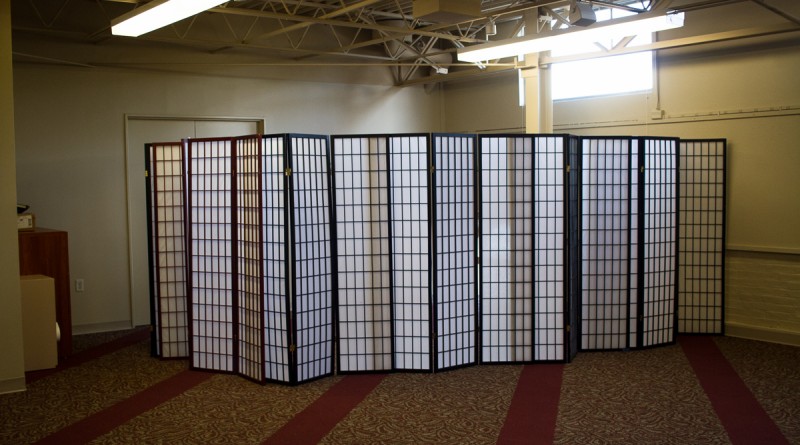Muslim students celebrate religious holiday at UD
By: Julia Hall—Staff Writer
“You don’t understand your own religion until you know others,” Anam Hussain, a senior pre-med major and officer of the Muslim Students Association, concluded with wide eyes. She reached this shrewd, developed thought after a conversation surrounding the Islamic holiday Eid al-Adha, which occurred Sept. 23-24.
“There are not really rituals for Eid. It is just ‘celebrate,’” said Rabiah Gul, a third-year law student and practicing Muslim. “It is the celebration of story of Abraham. Abraham is about to cut his son; he is actually closing his eyes. When he opens his eyes, he sees a goat instead. So, slaughtering one goat and sharing it with the community is the one particular ritual we do for Eid.”
Naima Ismail, a senior biology major, added, “The sacrificing of a goat is replicated on the last day of hajj, the pilgrimage to Mecca.”
However, this ritual is not necessarily practiced by every Muslim. Ismail was the only one of three students interviewed by Flyer News who had ever participated in this specific ritual.
“I have done it once,” she explained. “I went with my dad one year. We went to a farm—I was in Philly back then. We went out to Lancaster and slaughtered the goat and passed it out to our neighbors.”
Despite the lack of extensive structured rituals, the Islamic community, especially those on UD’s campus, find their own individual ways of celebrating this holiday.
“It is up to you and how you want to celebrate it,” Gul said.
“It is like most major holidays,” Ismail said. “People get together with family, food, presents and dressing up.”
Gul, then, shared how she usually observes the holiday: “I have a huge family with a lot of cousins. We just get together and chill.”
However, as college students away from home, it is difficult to engage in the festivities in their usual ways.
“This is not home to me, so I cannot do what I want to do,” Gul said. “A lot of people say that when they are away from family, it is hard to celebrate. Like any holiday, imagine you were away from home. What would you do instead? It’s like that.”
The Muslim Student Association on campus hosted events for those away from home, and those who were home, to celebrate the religious occasion.
“On Wednesday, the MSA had an event in which we did a get-together and dinner,” Ismail stated. “On Friday and Saturday, we also had a get together here on campus at ArtStreet.”
“We [Ismail and Hussain] went to the same mosque. I know a lot of people meet up and pray together,” Ismail added.
Regardless that they are at school, away from their families, Muslim students at UD have carved their own means of commemorating the holiday.
“Eating for me, in terms of Eid, is the center,” Gul said.
Many secular and religious holidays often involve certain foods. For example, Christians habitually mark Christmas by baking and eating Christmas cookies to celebrate. Instead, Eid al-Adha has personal and family practices for cooking and serving food, rather than foods for the whole religion.
This religious holiday is commemorated based upon the distinctive ways of the individual.
“Some people eat macaroni and cheese because that is what they like to eat,” Hussain said.
The originality that is brought to the festivities indicates a significant personal connection to the celebration. These three UD students indicate how this personal bond to religion and religious festivities can provide meaningful contributions to their faith lives.
UD may be a Catholic university, but its students represent such a diversity of backgrounds and beliefs. Amidst such a large population of Christian believers, the MSA is working to better establish a mutual understanding and appreciation between faiths on campus.
Hussain said an upcoming event in March is called “Jesus and Islam…?”
Many misunderstandings between religions often fuel incorrect or misinterpretations of each other’s beliefs, but as Hussain said, you need to try and understand them to understand your own.
“There are a lot of similarities [between different religions] that coincide,” Ismail said. “I am comfortable because UD is very open about their faith and how they practice it, and that makes them feel comfortable too.”

